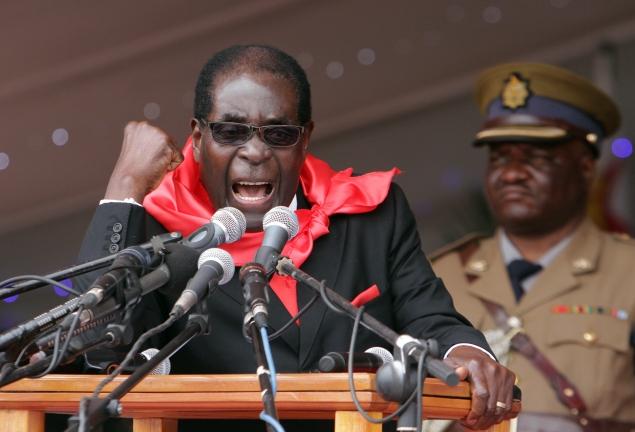The 92-year-old Zimbabwean President, Robert Mugabe, on Thursday in Harare maintained that even though is party would choose a successor, he planned to contest the next election in 2018.
Mugabe, who would be 94 by 2018, insisted that he would still seek his last five-year term under a new constitution that would see him through to 99 years old.
He said with reference to the UN Chief, Ban Ki-moon statement calling on African leaders not to cling to power, Mugabe responded that he would continue “until God says ‘come’’.
Mugabe, who turned 92 on Sunday, said he had no intention of stepping down in spite being Africa’s oldest leader and the only president Zimbabwe has known since independence in 1980.
He said as the president he still remained in charge of day-to-day running of his government.
Grace, his wife, a powerful figure in ZANU-PF in her own right, told party supporters that he was the only one who could keep Zimbabwe “intact and peaceful”.
She added that she would push him in a wheelbarrow to work if he was unable to walk.
Eldred Masunungure, a political science lecturer at the University of Zimbabwe, noted that from analysing the political situation, his political speeches, his political actions, it is increasingly becoming clear that he is gunning to be there for as long as he lives.
He said in spite his old age, Mugabe remained the glue holding together his fractious ZANU-PF, which dominates the political scene.
Masunungure said the president enjoyed support from the military, an institution that has been a major pillar of his long rule.
Meanwhile, many Zimbabweans followed his health with keen interest, especially after assertions by Wikileaks that he might have prostate cancer, which he denied.
They said with Mugabe having ruled for 36 years, some people fear the government could be paralysed and the country riven by instability, should he die without resolving the succession issue.
Zimbabweans recalled that in 2015 he read out the wrong speech in parliament, which the opposition seized upon to question whether he was still of sound mind, though the president’s spokesman blamed his aides.
They noted that his life presidency aspirations could frustrate the feuding big-hitters of his ruling ZANU-PF party, who have been trying for years to position themselves for a post-Mugabe political era.
Critics blame Mugabe for many of the problems facing the country.
They said his policies, including the seizures and redistribution of white-owned commercial farms, drove one of Africa’s most promising economies into nearly a decade of deep recession until 2008 that cut its output almost in half.
They also said Zimbabwe’s sluggish economy and low productivity, the jobless rate was around 85 per cent has left it ill-equipped to deal with the drought.
They said the drought had left 3 million people in need of food aid, about a quarter of the population.

